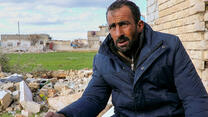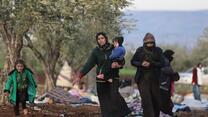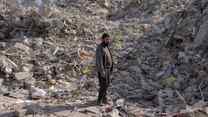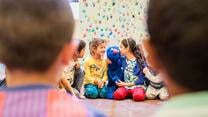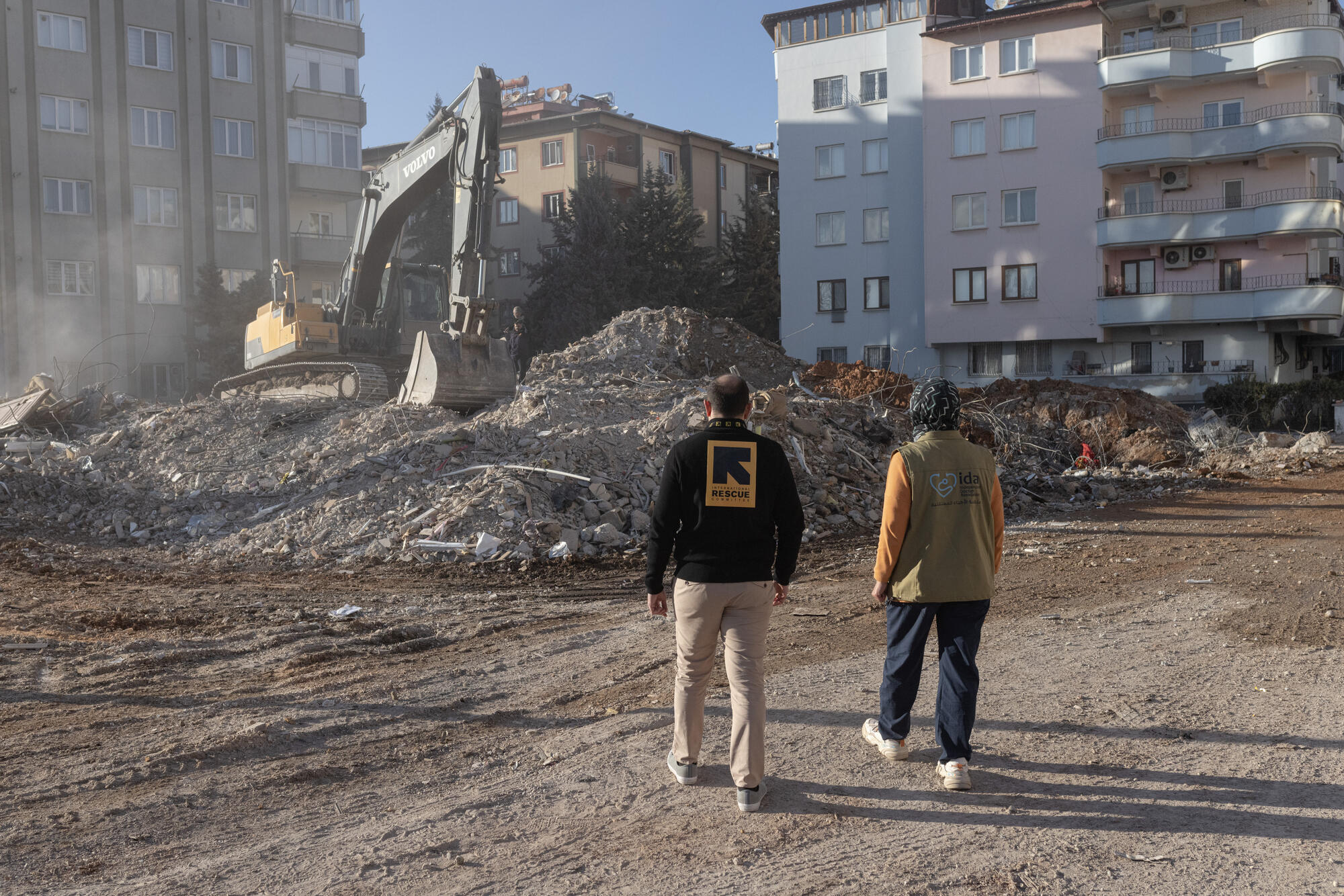
On Monday, February 6, 2023, a devastating series of earthquakes struck Türkiye (Turkey) near the Syrian border, with the most powerful one measuring a magnitude of 7.8. The impact was catastrophic, resulting in the loss of tens of thousands of lives and leaving countless others injured and deprived of basic necessities.
A year after the earthquake, families in the region are still grappling with its devastating impact. Many people lost everything—their homes, their workplaces, and their livelihoods. Others lost beloved family and friends, and the psychological impact of that loss is profound.
Even before the earthquakes, the people of Syria—now in their 13th year of war—were already facing one of the world’s worst humanitarian crises. During the harsh winter, two million people lacked adequate housing while a decimated health system struggled with a recent cholera outbreak.
In Türkiye, a country that has already hosted over 3.6 million registered Syrian refugees, continued early recovery services such as psycho-social support, physiotherapy, and housing are urgently needed.
Regarding the earthquake, Hamed*, the IRC’s economic recovery and development manager in Syria said, “Those 60 seconds, or maybe a little more, summarized over twelve years of war, of destruction, and of displacement.”
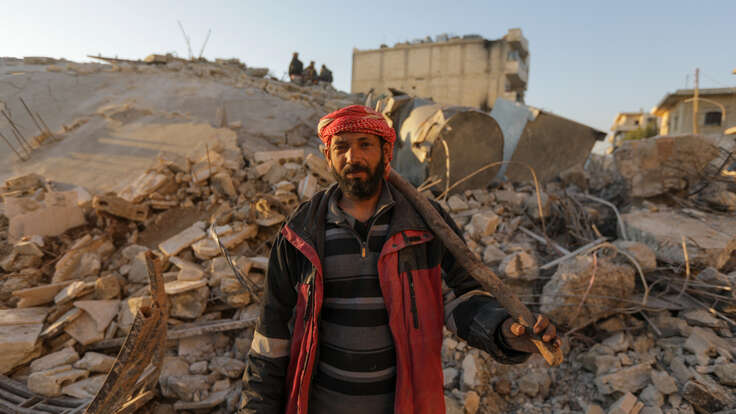
Since 2012, the International Rescue Committee (IRC) has been working in Syria, now with more than 1,000 staff inside the country providing lifesaving health care, protection and early recovery support. Following the earthquakes, the IRC scaled up our response to support affected populations throughout Türkiye and Syria, working closely with local organizations. Below, hear more about the work still happening now.
Distributing cash
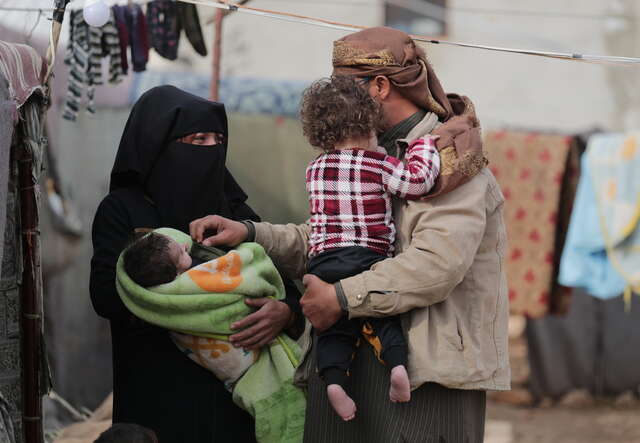
Providing cash support is one of the most effective ways to help people during times of crisis. Our dedicated teams have been distributing emergency cash to affected families since the earthquake hit.
“People lost everything—their homes, their children, their source of living,” says Hamed. “Providing cash can help people cover their urgent needs and get back on their feet."
Within the first few months, the IRC swiftly delivered emergency cash to over 12,000 households, benefiting approximately 76,000 individuals. Since then, their reach has expanded to over 34,000 households, supporting around 185,000 individuals.
“People are shy to demand anything,” says Muneer, who lost three children to the earthquake and has been receiving cash assistance from the IRC. “Today, if you give someone bread, he has no choice but to eat it. But, if you give him 50-100 Turkish liras, he knows what he really needs.”
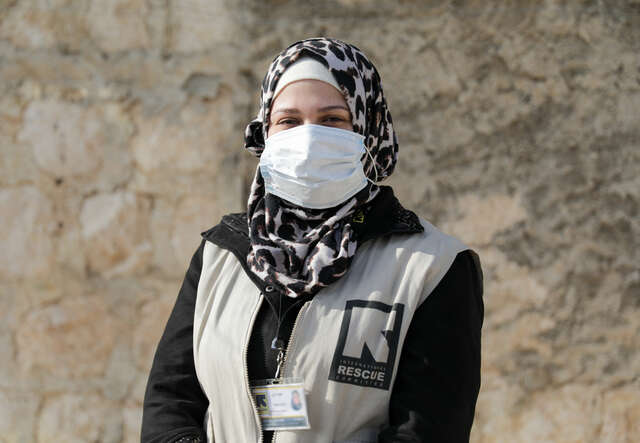
Women were often the main breadwinners for their families and had to find a new way to earn an income. In Syria, Hala, a livelihoods officer for the IRC, has been conducting training sessions to teach women valuable skills such as cooking, sewing and making jams. These skills will enable them to start new ventures and earn an income for their families. Additionally, the participants are given some capital to help them get started.
Dedicated to her job, Hala remains more motivated than ever to assist and uplift her community. “To help someone who needs us and our services makes me feel so happy,” she says. “When I see the impact on people’s psychology and that of their kids – it’s just wonderful.”
Health care
Mobile medical clinics
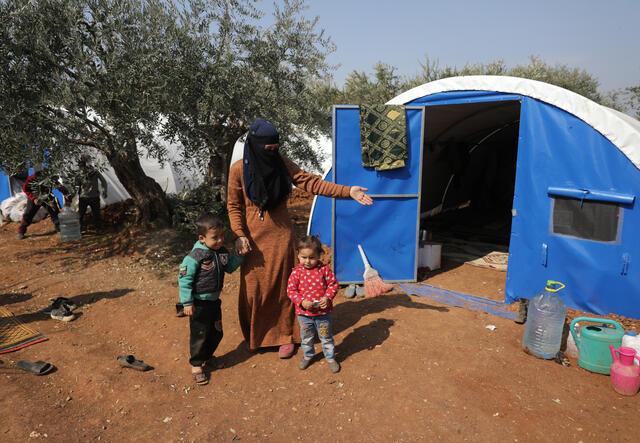
Dania, a 25-year-old mother of five, and her family were sleeping when the first earthquake struck a year ago. After several aftershocks, she heard her brother-in-law and his wife knocking at their door urging them to get out.
“As I left the doorstep, everything collapsed,” she says. “I lay down next to the door, protecting my head with my hands. We started to shout. Going downstairs, people said a nearby building collapsed. The main doorstep and entrance was severely damaged. It is not inhabitable anymore, not for a mere second."
Before the earthquake, Dania’s husband, who worked as a farmer, was the family’s primary breadwinner. With his fields now destroyed, Dania was left concerned for her son who suffers from asthma. Not long after that, she connected with an IRC mobile medical clinic team, which provided them with the necessary medicines and injections.
Our mobile health clinics have been instrumental in delivering essential medical support to earthquake survivors. As of February 2024, we have provided nearly 695,000 health consultations to over 545,000 people. We also support primary health clinics, surgical hospitals, and mental health and psychosocial support clinics. This comprehensive approach ensures that individuals receive the necessary care for their physical and mental well-being.
Mental health support
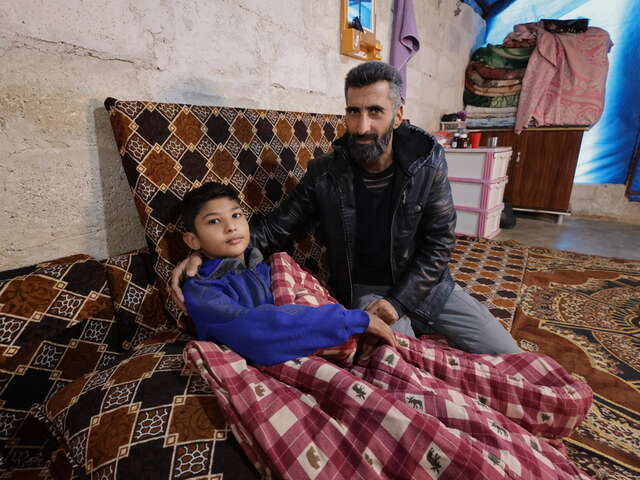
As people slept, the catastrophic quakes and their aftershocks caused buildings to crumble, leaving many too frightened to seek shelter indoors. In collaboration with local partners, we are extending support to18 more health facilities, which includes mental health units, to aid those affected by trauma. This includes counseling sessions to assist women, children and caregivers as well as providing safe spaces for them to stay.
“Mental health and psychosocial support is key at this time for those who have survived the earthquake, given the high prevalence of trauma and distress,” says Tanya Evans, the IRC’s Syria country director.
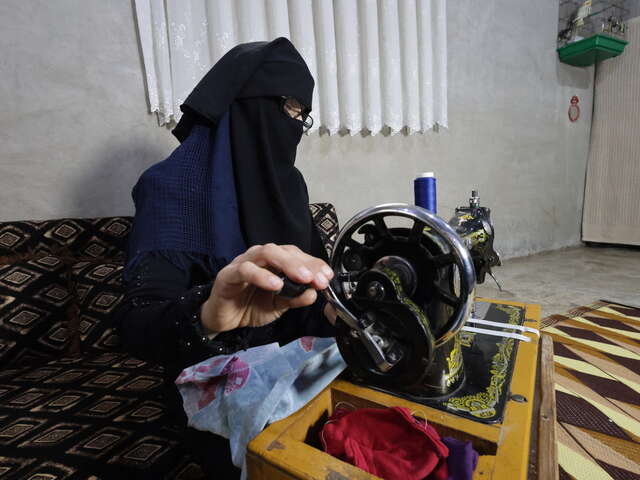
When the earthquake struck Syria, Fatima*, a talented tailor of 46 years, experienced a life-altering event, losing her youngest son along with their family home.
Fatima had been the primary breadwinner for her family and experienced severe anxiety following the loss of her livelihood. After speaking with an IRC officer, Fatima was connected to the resources her family needed including mental health care and medication for her husband, the three months rent she owed her landlord, furniture and gas.
With the assistance of an IRC partner organization, Fatima received support to establish her own small tailoring business. She was given a sewing machine, enabling her to regain a source of income. “For a long time, I never smiled from my heart,” Fatima recalls. “I used to wake up sad in the morning asking: ‘what will we do?’ I am now much better, I feel like I’ve been brought back to life.”
Supporting children
Beginning in May 2023, our unique earthquake response plan, developed in collaboration with the Ahlan Simsim team, created special modules for children and caregivers to support early childhood development.
IRC teams swiftly reached affected caregivers and children in temporary shelters and conducted awareness sessions for caregivers. The primary objective was to offer enjoyable activities for children, with a twin goal of alleviating psychological stress and fostering emotional expression. Meanwhile in April the team in Hizreh transported caravans to Barisha Schools in Harem, extending our reach to include even more affected and vulnerable children along with their caregivers.
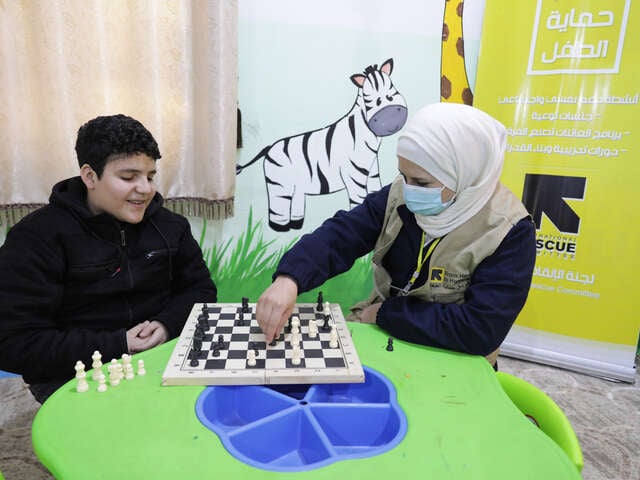
Maher*, 13, suffered severe injuries and the tragic loss of his mother due to the earthquake. Following an extensive recovery period, he now lives with his grandparents. Despite his immense hardships, he is diligently preparing for his 9th-grade exams.
Recognizing Maher's challenges, the IRC provides him with comprehensive assistance, including psychological and financial assistance, essential school supplies, as well as informative awareness sessions for his grandparents. Maher is committed to his studies and is now chasing his dream of completing his studies to become a doctor, a dream that his mother also shared.
Working with local organizations
In the affected regions of Türkiye, we are collaborating closely with our partners who possess in-depth knowledge of their communities. Together, we provide extensive support and facilitate the procurement of essential medicines and vital supplies to bolster their response efforts.
By partnering with local organizations we can leverage their experience and have a long term investment in the community.
As part of our initiative, we have launched four mobile health clinics in Gaziantep and Kilis in collaboration with our partner IDA. These clinics offer a range of services including physiotherapy, mental health support, and cash-for-health. This approach ensures that people displaced by the earthquake can access additional treatment from private service providers without incurring any costs.
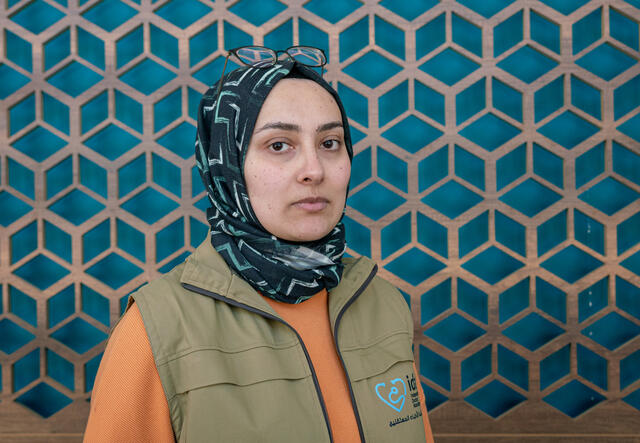
“This earthquake lasted two minutes and it affected more than 13 million individuals who are usually working,” says Esra, a 27-year-old doctor from Türkiye.
Esra and her team collaborated with the Independent Doctors Association, an IRC partner organization, to establish mobile physiotherapy and psychosocial support clinics in the Gaziantep and Kilis provinces in Türkiye. This initiative, which we support, aims to provide vital healthcare services to those in need
*Name changed or omitted for privacy
How can I help?
Please donate. Your gift will help the IRC provide emergency services to families in Türkiye and Syria, and to refugee families in countries around the world.
